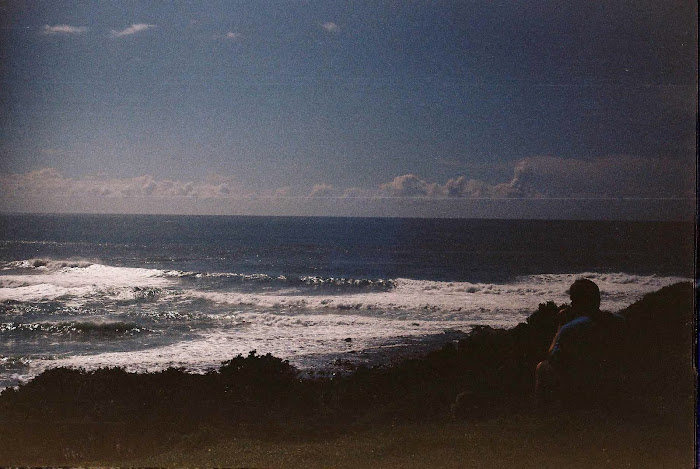Some of my earliest childhood memories are of the World Cup. I grew up one of three brothers, in a sports mad household in middle England, far from the beach and the ocean that now claim so many of my waking hours. We’d tear around the house high on the sugars, flavorings and preservatives packed into the penny sweets we’d swipe from the post office, until my mother would snap and kick us out into the garden with a football.
There the three of us would spend many hours playing three and in, headers and volleys, re-enacting the moves of our heroes. Mine was Clayton Blackmore, wing-back for Manchester United, a working man’s David Beckham. These were the days of Division One, where the BBC retained coverage. There was no Premier League, no Sky TV; British football was a tough and dour affair, played on battered fields in wrought iron stadiums with standing sections, barriers and pies. Foreign signings were limited and English teams traditionally fared poorly in European competition, so the World Cup was our chance to peer into the glamour clad arena of international football.
It was Italia ’90, with the stick-man logo, Pavarotti doing the theme tune and Schillachi the super-sub scoring every game. England were there under the late Sir Bobby Robson, then just Bobby and leader of the plucky band of underdogs sent in from a recession wrought England. I can’t remember much of the pre-tournament hype, I was only nine at the time, but I remember the characters. Waddle’s mullet, Gaza’s ball grabbing, an ageing Shilton, bloodied Butcher, Linker, Platt and that last gasp volley to squeeze us past Belgium. They seemed eager, honest and hard working and there was little fanfare as there is today. There was an endearing human edge to the side, battling for all they were worth, as we fought the recession at home.
They won through to the semi-finals where they went out to West Germany on penalties in an epic encounter, I watched it peering from under the covers at a friend’s house, and returned home to a heroes welcome having won the hearts of a nation, in so doing speeding the launch of the Premier League, from where English Football would change forever.
But the lasting memory of the world cup was the match against Cameroon. It was the second round match up, or the quarter, I can’t quite remember, but it was the knockout stages, and we were up against this unknown quantity from Africa, the Dark Continent, of which I knew nothing. I remember looking Cameroon up on the map before the game, I remember the pre-match coverage and the images of a world I had neither seen nor ever imagined, I remember they had a 40 year old playing for them – Roger Mila –, I remember the deep green shirts; the colour of the jungle that I imagined enveloped this far away land.
I remember the strong and athletic figures they cut as they stood through their formal and colonial anthem. The speed, the rhythm, the freedom and flow and the total disregard for the traditional tactical play favoured by the European sides I knew so well. Cameroon actually played, with no fears of the consequences. This was new, it was foreign, and as I would come to know, inherently and unmistakeably African.
I remember Mila’s jig in the corner when he scored and I thought it was over, and the relief on Lineker’s exhausted looking face when he fired home the penalty that saw us through by the skin of our teeth, against this dark and unknown force that put Africa deep into my conscious.
So today, sitting in Cape Town, waiting for the cup to come, I am excited. And though I want England to succeed, in all their glitz and their pomp, a large part of my heart will lie with Africa, where I live today running a football charity, where football has a humble home much like the ones I saw on the TV in 1990, that opened my eyes to this weird and wonderful place, all those years ago.










No comments:
Post a Comment